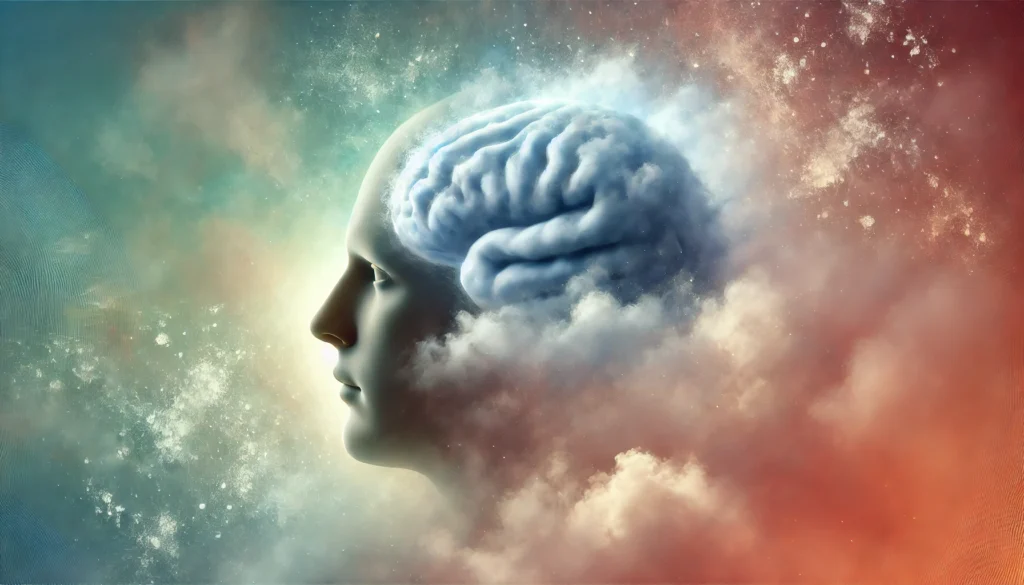Introduction
Dizziness and forgetfulness are two symptoms that can significantly impact daily life, yet they are often overlooked or dismissed as minor inconveniences. However, when these symptoms persist, they may indicate underlying health concerns that require attention. The sensation of dizziness, which can range from lightheadedness to vertigo, coupled with cognitive difficulties like memory loss, may stem from various physiological and neurological causes. For some, these symptoms manifest as occasional episodes, while for others, they may be chronic and debilitating. Addressing these concerns involves understanding their root causes, implementing effective brain fog solutions, and exploring cognitive enhancement strategies that improve overall mental clarity.
You may also like: What Vitamin Deficiency Causes Brain Fog? Key Nutrients You Might Be Missing
The intersection between dizziness and forgetfulness is particularly crucial in understanding how brain function and overall health are interconnected. Conditions such as vestibular disorders, circulatory issues, nutritional deficiencies, and neurodegenerative diseases can all contribute to these symptoms. By identifying and addressing the causes, individuals can adopt lifestyle changes, dietary interventions, and nootropic supplementation to support cognitive function and alleviate symptoms. This article explores the science behind dizziness and memory loss, the role of brain fog in cognitive impairment, and practical solutions for optimizing mental performance.

The Link Between Dizziness and Forgetfulness
The relationship between dizziness and forgetfulness is complex, as both symptoms can stem from similar underlying conditions. Neurological disruptions, poor circulation, vestibular dysfunction, and metabolic imbalances are common culprits. Dizziness, often described as a feeling of unsteadiness or vertigo, can lead to cognitive impairment due to inadequate blood flow to the brain. When oxygen and nutrients fail to reach brain cells efficiently, memory loss and mental fog may follow.
In some cases, dizziness and forgetfulness may occur due to stress, dehydration, or lack of sleep. However, chronic instances should not be ignored, as they may indicate serious medical conditions. Individuals experiencing frequent dizzy spells combined with forgetfulness should consider seeking medical evaluation to rule out conditions such as anemia, low blood pressure, or neurodegenerative diseases like Alzheimer’s or Parkinson’s.
Additionally, medications that affect the central nervous system can lead to both dizziness and cognitive dysfunction. Certain sedatives, antidepressants, and antihypertensive drugs have side effects that impair balance and memory, further complicating the connection between these symptoms. Understanding these contributing factors is essential for implementing effective interventions.
Common Causes of Dizziness and Memory Loss
Several physiological and pathological factors contribute to dizziness and forgetfulness. Identifying these causes is crucial for developing a targeted approach to managing symptoms.
1. Poor Circulation and Cardiovascular Conditions
The brain relies on a steady supply of oxygen and nutrients delivered via the circulatory system. Conditions such as hypotension (low blood pressure), anemia, and atherosclerosis can impair blood flow, leading to dizziness and cognitive issues. When brain cells receive insufficient oxygen, individuals may experience difficulty concentrating, short-term memory lapses, and episodes of vertigo.
Furthermore, cardiovascular diseases such as arrhythmias or heart failure can contribute to dizziness and forgetfulness due to inadequate perfusion of brain tissue. Managing cardiovascular health through diet, exercise, and medication is essential for mitigating these symptoms.
2. Vestibular Disorders and Inner Ear Dysfunction
The vestibular system, located in the inner ear, plays a key role in maintaining balance and spatial orientation. Disorders such as benign paroxysmal positional vertigo (BPPV), Ménière’s disease, and vestibular migraines can cause dizziness and cognitive impairment. When the vestibular system is compromised, individuals may struggle with coordination, experience brain fog, and have difficulty processing information efficiently.
Treatment for vestibular disorders may include physical therapy, medication, and lifestyle modifications. Ensuring proper hydration and managing stress levels can also help alleviate symptoms.
3. Nutritional Deficiencies and Dehydration
Deficiencies in essential vitamins and minerals can have a profound impact on brain function. A lack of vitamin B12, iron, and magnesium is commonly associated with cognitive decline and dizziness. Vitamin B12, in particular, is essential for nerve function and red blood cell production. Without adequate levels, individuals may experience fatigue, weakness, and neurological symptoms such as memory loss.
Dehydration also plays a significant role in dizziness and cognitive impairment. The brain is highly sensitive to hydration levels, and even mild dehydration can result in confusion, poor concentration, and lightheadedness. Ensuring adequate water intake and maintaining a balanced diet rich in essential nutrients can help improve symptoms.
4. Neurodegenerative Diseases and Cognitive Decline
Dizziness and forgetfulness can be early warning signs of neurodegenerative disorders such as Alzheimer’s disease, Parkinson’s disease, and multiple sclerosis. These conditions affect brain structure and function, leading to progressive cognitive decline. While nootropic interventions and lifestyle modifications can slow disease progression, early detection is critical for effective management.
Current research suggests that cognitive enhancement strategies, such as engaging in mental exercises, maintaining a Mediterranean diet, and using neuroprotective supplements, may help preserve cognitive function in individuals at risk of neurodegeneration.
Brain Fog Solutions for Improved Cognitive Function
Brain fog, characterized by mental fatigue, confusion, and forgetfulness, is a common complaint among individuals experiencing dizziness and memory loss. Addressing brain fog requires a multifaceted approach that includes lifestyle adjustments, dietary changes, and targeted supplementation.
1. Optimizing Sleep Quality
Poor sleep quality is a major contributor to brain fog and cognitive dysfunction. Sleep deprivation affects memory consolidation, attention span, and overall cognitive performance. Establishing a consistent sleep routine, avoiding blue light exposure before bed, and incorporating relaxation techniques such as meditation can promote restorative sleep.
2. Managing Stress and Anxiety
Chronic stress and anxiety can exacerbate both dizziness and forgetfulness. The stress hormone cortisol disrupts memory formation and retrieval, leading to cognitive impairments. Mindfulness practices, deep breathing exercises, and engaging in regular physical activity can help regulate stress levels and improve mental clarity.
3. Nootropic Supplements for Cognitive Enhancement
Nootropic supplements, also known as brain boosters, can support cognitive function and alleviate symptoms of brain fog. Common nootropics include:
- Ginkgo Biloba: Enhances blood circulation to the brain and improves memory retention.
- Bacopa Monnieri: Known for its neuroprotective properties and ability to reduce anxiety-induced cognitive decline.
- Omega-3 Fatty Acids: Supports brain health and reduces inflammation associated with cognitive dysfunction.
- Rhodiola Rosea: Helps combat mental fatigue and enhances cognitive resilience.
By incorporating these supplements into a balanced lifestyle, individuals can improve focus, memory, and overall cognitive performance.

Frequently Asked Questions (FAQ) About Dizziness, Memory Loss, and Fatigue
1. What are the lesser-known causes of dizziness and forgetfulness? Dizziness and forgetfulness can result from a wide range of factors beyond common conditions like dehydration or anxiety. Nutritional deficiencies, such as low vitamin B12 levels, can contribute to neurological symptoms, including cognitive decline and balance issues. Chronic stress and lack of sleep also exacerbate these symptoms by affecting blood circulation to the brain. Additionally, certain medications, including those for blood pressure and anxiety, may lead to side effects that include dizziness and forgetfulness. If these symptoms persist, a thorough medical evaluation can help determine the underlying cause and appropriate treatment.
2. How can lifestyle changes improve symptoms of vertigo, memory loss, and fatigue? Making targeted lifestyle changes can significantly reduce vertigo, memory loss, and fatigue. Regular physical activity, particularly balance exercises like tai chi or yoga, helps improve stability and cognitive function. Proper hydration and a diet rich in omega-3 fatty acids, antioxidants, and whole grains can enhance brain health and reduce inflammation. Establishing a consistent sleep routine improves memory consolidation and prevents cognitive decline. Managing stress through mindfulness techniques, such as meditation or breathing exercises, can also lower cortisol levels, reducing symptoms of dizziness and fatigue. Combining these strategies creates a holistic approach to improving overall well-being.
3. Can certain foods help alleviate dizzy and memory loss symptoms? Yes, diet plays a crucial role in managing dizzy and memory loss symptoms. Leafy greens like spinach and kale provide essential nutrients that support brain function and circulation. Foods rich in magnesium, such as almonds and dark chocolate, can help regulate nerve function and blood pressure, reducing dizziness. Omega-3 fatty acids found in salmon, walnuts, and flaxseeds support cognitive health and may mitigate memory loss. Staying hydrated and avoiding excessive caffeine or alcohol intake also minimizes dizziness. Incorporating these foods into a balanced diet can improve cognitive function and reduce episodes of vertigo.
4. How does stress contribute to dizziness and forgetfulness? Chronic stress has a significant impact on the brain and body, leading to dizziness and forgetfulness. Elevated stress levels increase cortisol production, which can impair short-term memory and disrupt cognitive function. Stress also affects the inner ear, which plays a crucial role in balance, contributing to dizziness. Additionally, anxiety-related hyperventilation can cause lightheadedness and brain fog. Practicing relaxation techniques, engaging in regular physical activity, and ensuring adequate rest can help mitigate the effects of stress and improve mental clarity.
5. What role does hydration play in preventing vertigo memory loss fatigue? Dehydration is a major contributor to vertigo, memory loss, and fatigue. The brain relies on adequate fluid levels for optimal function, and even mild dehydration can impair concentration and short-term memory. Insufficient hydration affects blood circulation, leading to dizziness and sluggish cognitive processing. Consuming adequate water throughout the day, especially in warm weather or after physical activity, can prevent these symptoms. Herbal teas and electrolyte-rich beverages can also help maintain hydration levels, particularly for individuals who experience frequent dizzy spells.
6. Are there any medical conditions that link dizziness, memory loss, and fatigue? Several medical conditions can lead to dizziness, memory loss, and fatigue. Vestibular disorders, such as Ménière’s disease, affect balance and often lead to vertigo and brain fog. Chronic conditions like fibromyalgia and chronic fatigue syndrome (CFS) also cause cognitive dysfunction and persistent exhaustion. Autoimmune disorders, including multiple sclerosis, can impact neurological function and contribute to these symptoms. If dizziness, memory loss, and fatigue persist without an obvious cause, it’s important to seek medical evaluation to rule out underlying conditions.
7. Can poor sleep quality contribute to dizziness and forgetfulness? Yes, sleep deprivation is a common cause of dizziness and forgetfulness. The brain relies on sleep for memory consolidation and cognitive processing, and insufficient rest can lead to impaired recall and mental fatigue. Sleep disorders such as sleep apnea reduce oxygen flow to the brain, increasing the likelihood of vertigo memory loss fatigue. Establishing a bedtime routine, reducing screen time before sleep, and creating a comfortable sleep environment can improve sleep quality and reduce cognitive impairment. Addressing sleep-related issues is crucial for maintaining overall brain health.
8. How does aging affect the likelihood of experiencing dizziness and forgetfulness? As people age, natural changes in brain function, circulation, and balance mechanisms increase the risk of dizziness and forgetfulness. Reduced blood flow to the brain and changes in neurotransmitter levels can impair cognitive function. Additionally, age-related degeneration in the inner ear can affect balance, leading to an increased risk of falls. Regular cognitive exercises, social engagement, and a nutrient-dense diet can help mitigate these effects. Seeking medical advice for persistent symptoms can also help differentiate between normal aging and more serious conditions like dementia.
9. What are the best strategies for managing dizziness and forgetfulness in daily life? There are several effective strategies for managing dizziness and forgetfulness. Keeping a structured daily routine with reminders and to-do lists can enhance memory retention. Using mobility aids and practicing slow movements when standing up can help prevent dizziness-related falls. Engaging in brain-stimulating activities, such as puzzles and learning new skills, promotes cognitive resilience. Additionally, maintaining a healthy diet and staying hydrated can support brain function and reduce dizziness. Seeking medical guidance ensures that any underlying conditions are properly addressed.
10. When should I seek medical help for dizziness, memory loss, and fatigue? It’s essential to seek medical attention if dizziness, memory loss, and fatigue persist, worsen, or interfere with daily life. Symptoms that occur suddenly, are accompanied by vision problems, difficulty speaking, or severe headaches may indicate a more serious condition requiring urgent evaluation. If lifestyle changes do not improve symptoms or if they progressively decline, a healthcare provider can conduct tests to identify potential causes. Early intervention can help manage underlying conditions effectively and prevent complications. Keeping a symptom journal can also aid in diagnosis by tracking patterns and triggers.

Conclusion
Dizziness and forgetfulness are multifaceted symptoms that require a comprehensive approach to diagnosis and management. Understanding the underlying causes, from circulatory issues to nutritional deficiencies and neurodegenerative diseases, is essential for finding effective solutions. Implementing brain fog remedies, optimizing sleep, managing stress, and incorporating nootropic supplements can enhance cognitive function and reduce symptoms. By taking proactive steps to support brain health, individuals can improve their overall well-being and maintain mental clarity for years to come.
balance disorders, cognitive impairment causes, chronic fatigue solutions, brain fog remedies, neurological health tips, vestibular system dysfunction, improving memory naturally, cognitive decline prevention, vertigo treatment options, brain health nutrition, lifestyle changes for better memory, hydration and brain function, stress management techniques, aging and cognitive function, sleep deprivation effects on memory, managing dizziness naturally, neuroprotective diet, exercises for better balance, mental clarity strategies, early signs of cognitive issues
Further Reading:
The Science of Brain Fog: Causes and Solutions
Brain Fog: Solutions to Help You Improve Concentration
.Important Note: The information contained in this article is for general informational purposes only, and should not be construed as health or medical advice, nor is it intended to diagnose, prevent, treat, or cure any disease or health condition. Before embarking on any diet, fitness regimen, or program of nutritional supplementation, it is advisable to consult your healthcare professional in order to determine its safety and probable efficacy in terms of your individual state of health.
Regarding Nutritional Supplements Or Other Non-Prescription Health Products: If any nutritional supplements or other non-prescription health products are mentioned in the foregoing article, any claims or statements made about them have not been evaluated by the U.S. Food and Drug Administration, and such nutritional supplements or other health products are not intended to diagnose, treat, cure, or prevent any disease.


